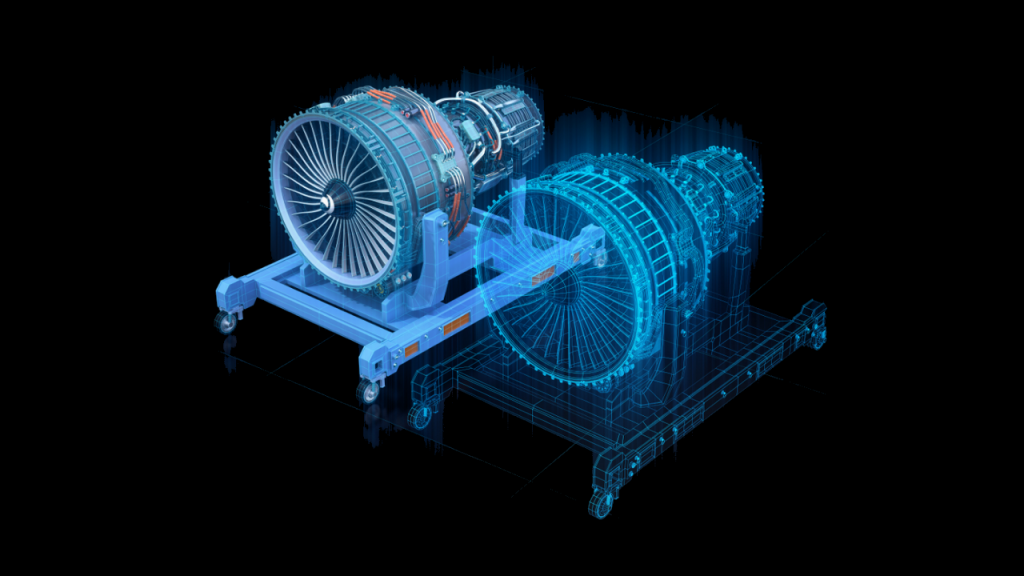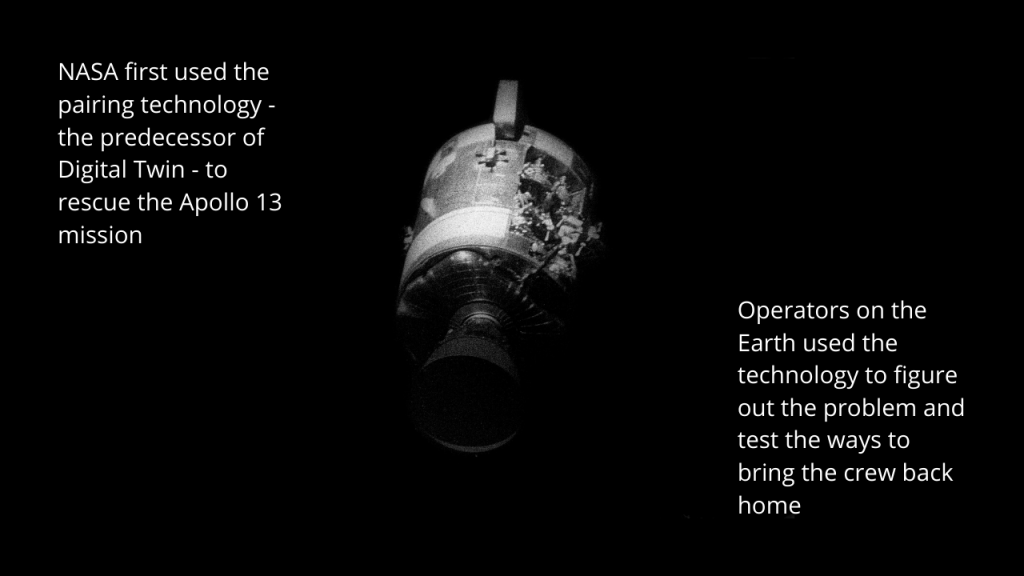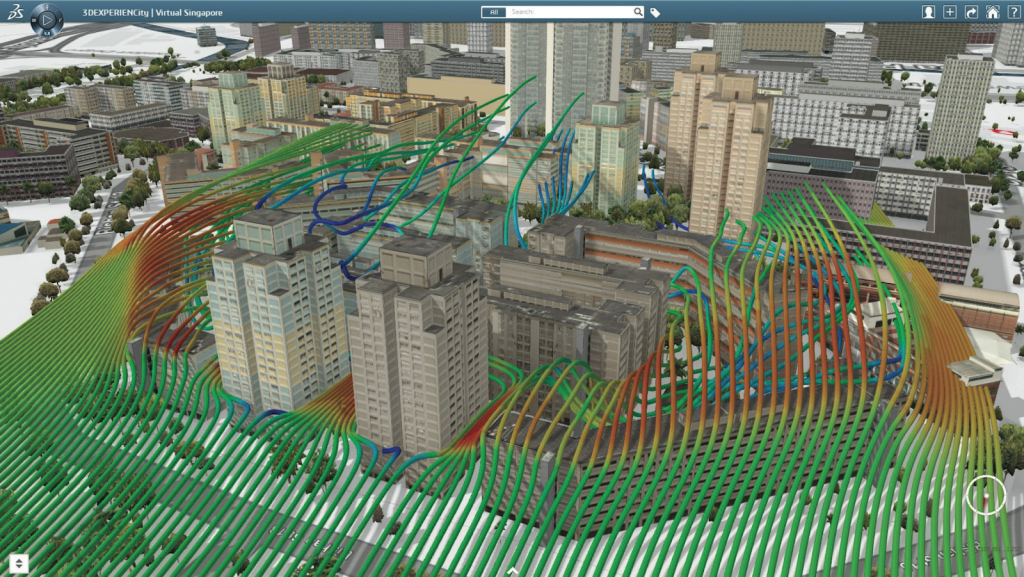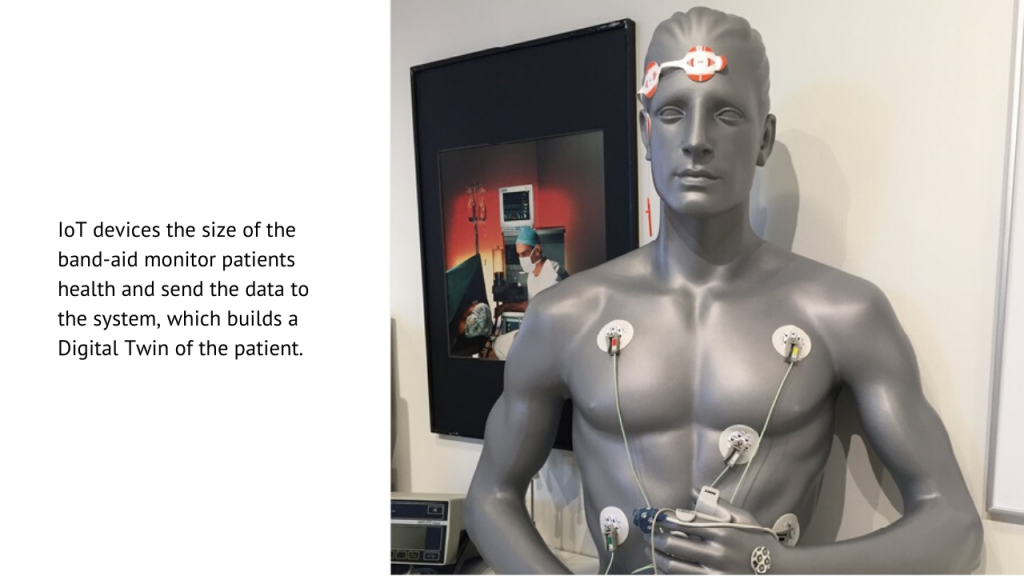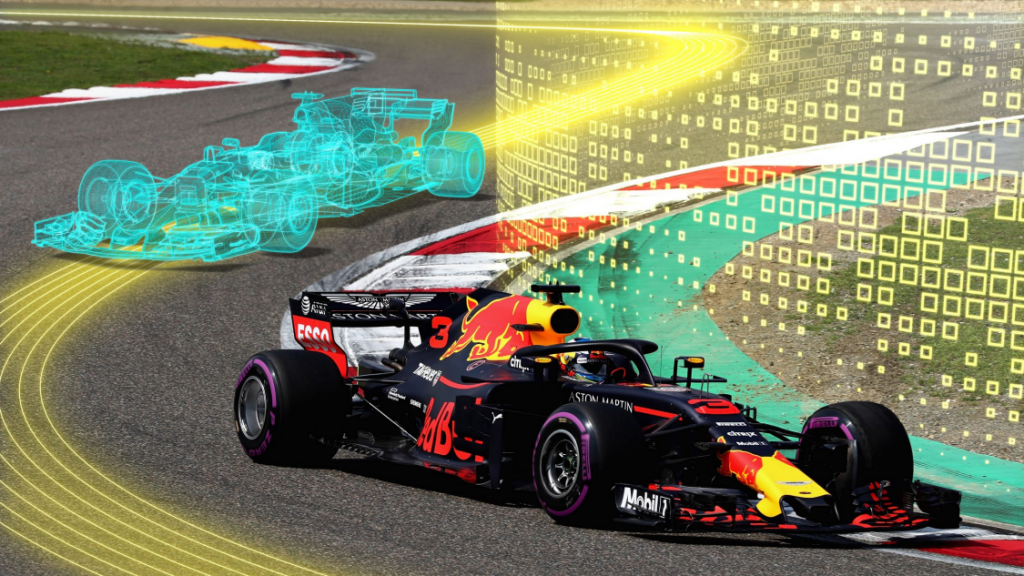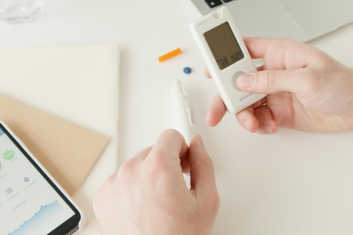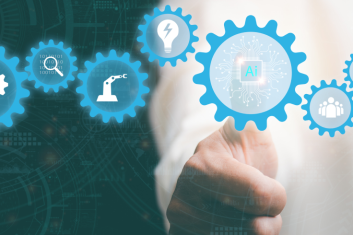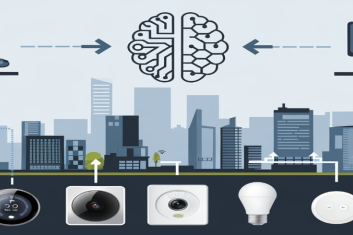The industrial Internet of Things makes it possible to gather various data that businesses can use to their benefit. What if we told you that such data can be used to study and improve a product even before it is launched?
How about extracting value from a product and testing all kinds of “what-if” scenarios without physical interaction? That’s exactly what Digital Twins are designed to do.
What Is a Digital Twin?
The term “Digital Twin” was coined in 2002 by Dr. Michael Grieves. He proposed the concept of a Digital Twin as a base for product lifecycle management.
The initial concept consisted of three parts: a physical object, a digital/virtual copy, and connections between them. The connections, in this case, consist of the data that is transmitted back and forth between a physical object and a Digital Twin.
Put simply, a Digital Twin is a virtual model of a process, product, or service. The Digital Twin is created by the data that IoT devices gather about a physical object. The IoT system structures the data and analyzes it.
The data analysis allows the system to gain insights on what is going on with the product, predict its behavior, and figure out how to best maintain and improve it.
We can also use Digital Twins as prototypes to conduct experiments. That way, maintenance solutions, manufacturing techniques, and upgrades may be tested safely, before any changes are made to the physical object.
The Digital Twin market is growing very quickly and is expected to surpass a market share of $20 billion by 2025.
An illustration of a Digital Twin
What Are the Types of Digital Twins?
There are three major types of Digital Twins:
- Digital Twin Prototype. This type of Digital Twin is basically a prototype of a physical object before it is actually produced. It incorporates all the data related to the design and production of an object.The information the DTP stores includes:- its requirements;
– an annotated 3D model;
– a Bill of Materials;
– a Bill of Processes.One of our specialists will explain the terms at the end of this list.
- Digital Twin Instance. An Instance represents a physical product that a Digital Twin replicates. It contains an annotated 3D model with general dimensioning and tolerances; it describes the geometry of a physical product and its components. Apart from that, it has:- a Bill of Materials;
– a Bill of Processes;
– a Service Record;
– The Operational States.
- Digital Twin Aggregate. This is a combination of all Digital Twin Instances. Unlike the DTI, a Digital Twin Aggregate is not an independent structure. The Digital Twin Aggregate uses the data incorporated in the Digital Twin Instances to study the physical product and identify and learn patterns, as well as make predictions.
Andrei Kazakevich
Project Manager
at HQSoftwareLet’s clarify a couple of terms here.
Bill of Materials — is a list of raw materials, components, parts, and assemblies needed to manufacture a product.
Bill of Processes — this describes steps, methods, machine settings, and variables needed to build a product.
Service Record — a record of all operations performed on a product: for instance, components that have been replaced.
Operational State — the state of the working product, documented with the help of data from IoT devices.
How are Digital Twins applied?
Businesses can use Digital Twin technology to extract the most value out of their products, improve workflow, and cut costs. Like other IoT solutions, it can also be paired with other industrial technologies to acquire new insights.
Nasa Simulates Spacecraft
NASA was the first to try out Digital Twins. Since the agency’s equipment operates in outer space, it is expensive and sometimes impossible to maintain; it’s not like you can send a group of technicians up there weekly.
NASA needed a way to update, maintain, and monitor spacecraft that can’t be accessed physically. So it used pairing technology, a predecessor to the Digital Twin concept, to work with agency systems in outer space.
The technology proved to be beneficial during the Apollo 13 mission. Pairing technology allowed the flight operators and astronauts to solve problems in the spacecraft after an explosion occurred in an oxygen tank, and to rescue the crew.
Now NASA uses Digital Twins to digitally simulate and test next-generation spacecraft — without spending tons of money to build them.
Singapore Builds a Digital Twin of Itself
In 2018, a software company, Dassault Systèmes, built a Digital Twin of the whole city of Singapore that goes even beyond creating digital replicas of hospitals, factories, and cars. It is a virtual replica of Singapore called 3DEXPERIENCity. The Singapore government invested $73 million in the project.
3DEXPERIENCity is a great asset to city management, which makes it possible, for example, to take a deep look into the energy consumption of the city and enhance its power efficiency. This virtual replica assists in better city planning, enhances the ability to predict disasters, and allows for intelligent adjustments to traffic lights and subway opening hours.
In a way, it allows the city to become almost completely autonomous since parameters such as traffic light schedules or public safety measures can be changed based on the AI analysis.
3DEXPERIENCity improves city planning and enhances infrastructure.
Ge Studies Wind Energy
GE applies industrial IoT solutions to wind farms, offering a wide range of turbines to suit different wind environments. To make the manufacturing of wind turbines easier and more cost-effective, GE has implemented more than 500,000 Digital Twins.
Engineers at GE use Digital Twins to configure turbines before they are built. Now, the company has a digital copy of every GE wind turbine on the planet, which gets richer while the physical asset is working.
A connected infrastructure lets clients fully control turbines, monitor their condition, and review the data they gather. On the manufacturer’s side, connected wind farms provide data the company can use to further improve its product.
GE has built an infrastructure of connected wind turbines.
Hospitals Improve Diagnosing
Introducing Digital Twin to the workflow can offer many benefits to the healthcare industry. This technology can help optimize the patient flow and allow for monitoring patients’ well-being on a whole new level.
Hospital staff can use sensors the size of a band-aid to monitor patients’ health conditions and send the information to the Digital Twin.
Want to build a Digital Twin solution?
Partner up with us to get a top-notch product.
Aleksandra Golik
Head of Sales
at HQSoftware
IoT healthcare companies believe that hospitals can adopt technology in their operations just as smart factories do. Mixing wireless sensors and analytics will allow healthcare providers to diagnose emergency patients right in the ambulance as they are approaching the hospital.
Fast diagnosis allows for earlier treatment and quicker patient discharge. In addition, some patients can be monitored remotely with the help of wearable devices.
Based on data obtained from wearables, the system can use Artificial Intelligence to diagnose a patient and suggest an effective treatment.
Automotive Industry Boosts Vehicle Performance
Digital Twins are also helpful with IoT in the automotive industry. For instance, F1 engineers can study digital simulations to discover ways to build vehicles that will race at optimum efficiency.
A Digital Twin allows for a thorough study of each element’s performance. Then the AI can review the data and suggest adjustments to increase the vehicle’s overall performance. In a sport where each second counts, finding ways to shave off time while maintaining top performance is crucial.
The Formula 1 simulation is interactive: drivers can drive it to learn a lot about the vehicle’s behavior and prepare for real races.
Formula 1 team uses Digital Twins to boost vehicle performance.
Bottom Line
Digital Twin technology is a great addition to Industry 4.0. IoT systems generate lots of data, which industries can use to build Digital Twins to:
- improve efficiency and productivity;
- decrease expenses;
- create the ability to test systems before manufacturing; and
- apply data to provide better service.
Of course, the technology faces many challenges. Security solutions often lag behind rapid advances. The Digital Twin is in the cloud and does not require any physical infrastructure, apart from the physical asset itself. So in that sense, security risks are lower than those of physical systems.
But the connection between physical assets and a Digital Twin can be compromised, as data flows between devices and the cloud. So businesses looking to adopt Digital Twin technology must pay attention to security measures including:
- data encryption;
- different levels of access;
- addressing known system vulnerabilities; and
- regular security checkups.

HQSoftware Founder
Having founded the company in 2001, uses his broad knowledge to drive the company forward. Ready to share his wisdom on software development and technology insights
Related Posts
View All
We are open to seeing your business needs and determining the best solution. Complete this form, and receive a free personalized proposal from your dedicated manager.

Sergei Vardomatski
Founder

